Description
ABSTRACT
The Rule of Law and Restriction on Assets of Politically Exposed Persons in Nigeria: Executive Order No.6 of 2018 in Perspective
Theophilus Ochonogor*
In a presidential system of government, executive orders are directives issued by the president to guide operations of the executive arm based on laws made by the legislature. Executive orders have been in use in the United States of America (USA) since the time of its first president, and that tradition has been maintained to date. Nigeria being a nascent presidential democracy, executive orders have not become as instrumental to governance as they may be in the USA. This paper was inspired by the issuance of Executive Order No 6 of 2018 on 5 July 2018 by President Muhammed Buhari and its implications for the observance of the rule of law and separation of powers in Nigeria. The role of the judiciary is critical towards ensuring that the executive arm of government continues to operate within the law and in the best interests of our democracy.
INTRODUCTION
Nigeria is a federal republic operating constitutional democracy. At independence in 1960 the country inherited the parliamentary system of government from Britain, its erstwhile colonial master. The parliamentary system was short – lived, however, as the country’s first republic was terminated on 15 January 1966 by the military. After thirteen years of military rule, the country’s second republic took off on 1 October 1979 with a new Constitution coming into force and introducing the presidential system of government. The experiment with the presidential system was also interrupted with the sacking of President Shehu Shagari’s government in December, 1983. The military remained in power until the inauguration of the country’s fourth republic with the swearing – in of President Olusegun Obasanjo on 29 May 1999. The country has practiced the presidential system of government ever since. Black’s Law Dictionary defines a democracy as:
1. Government by the people, either directly or through representatives elected by the people; … a system of government in which every citizen of the country can vote to elect its government officials. 2. A country that has a government that has been elected by the people of the country. 3. A situation or system in which everyone is equal and has the right to vote, make decisions, etc.1
*LLB, BL. Partner, Alliance Law Firm, Lagos, Nigeria.
- Bryan A Garner, Black’s Law Dictionary (10th edn, St Paul Minnesota:West Group 2014) 525.

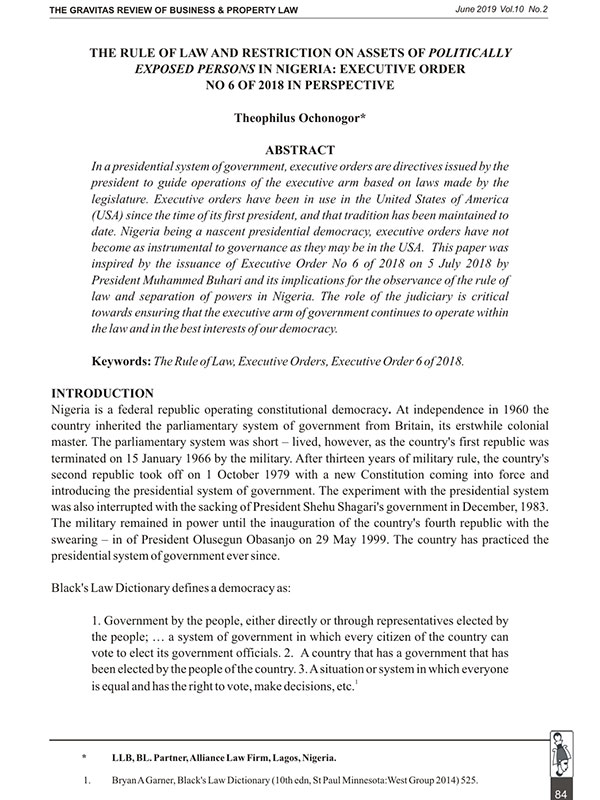
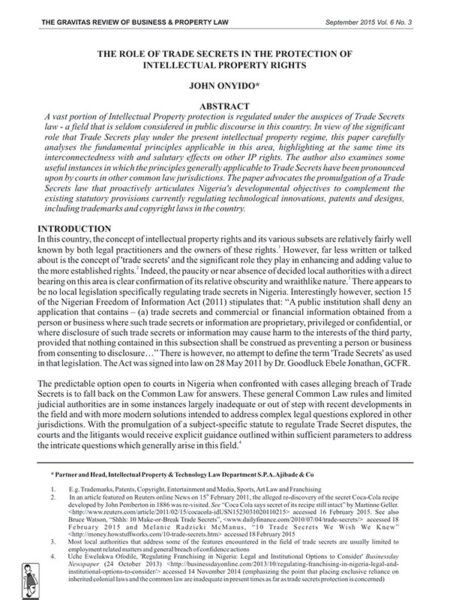
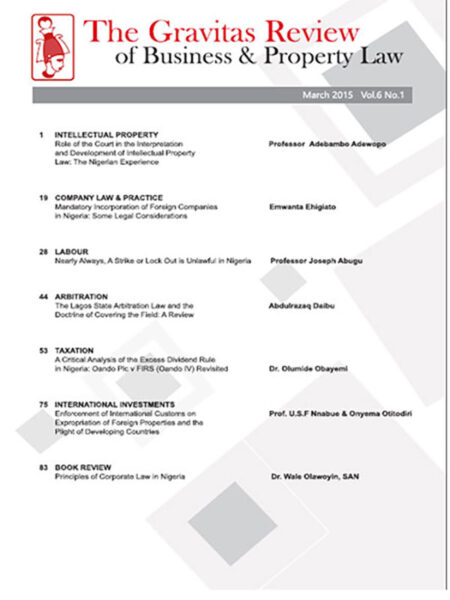
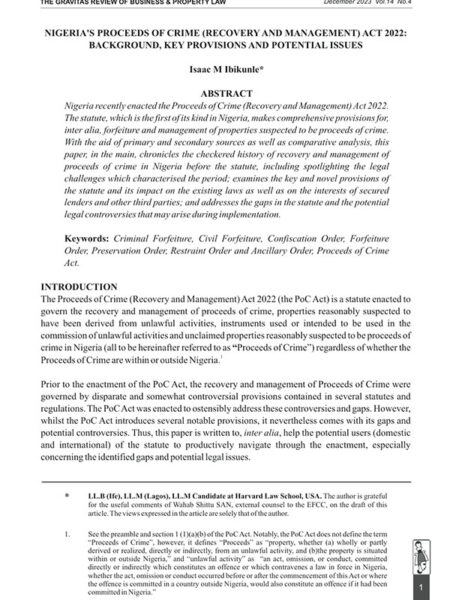


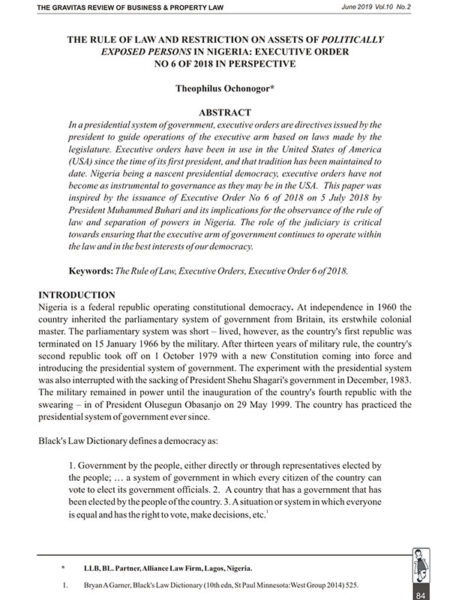
Reviews
There are no reviews yet.